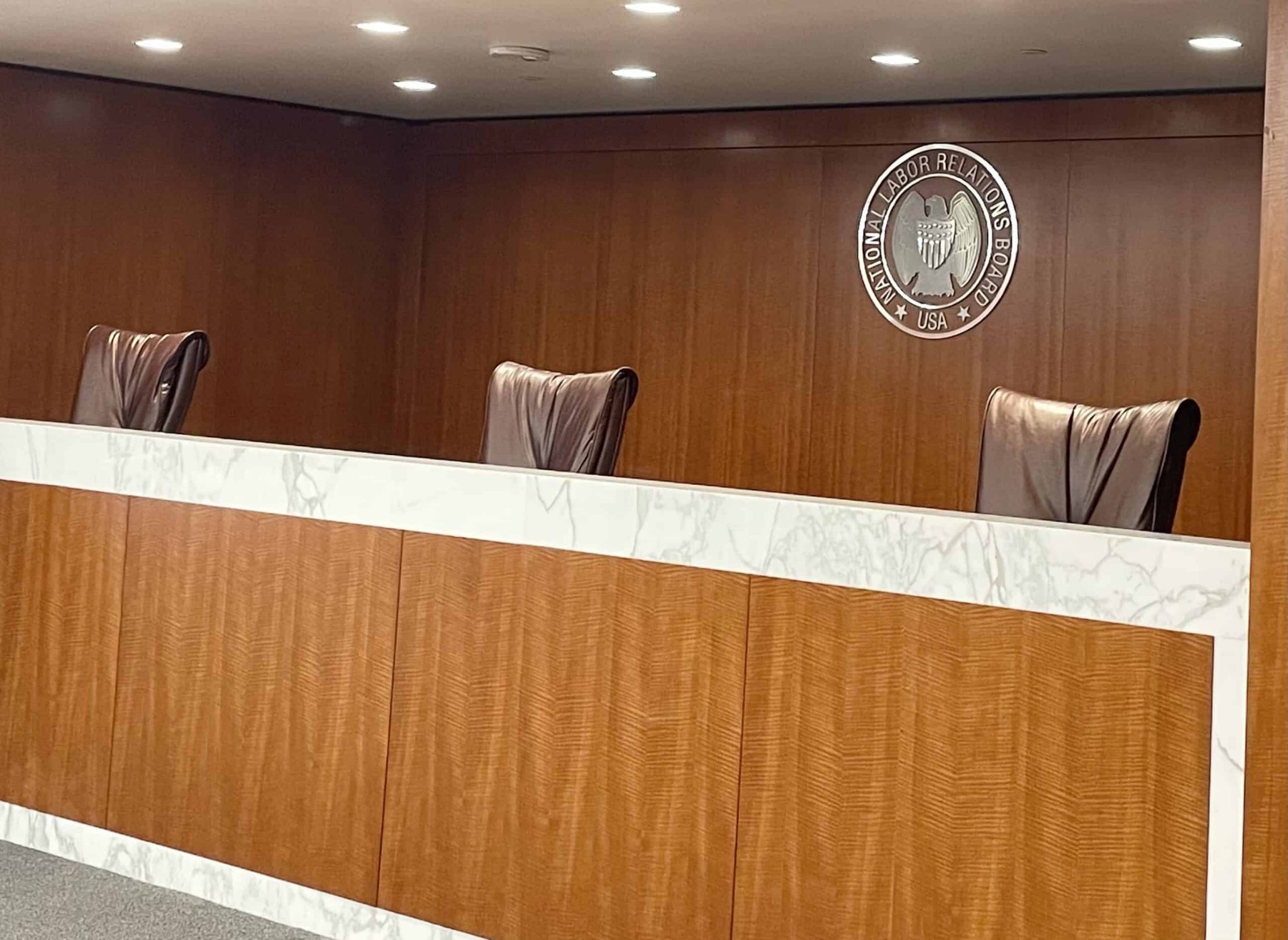Everest Fang is a student at Harvard Law School.
In today’s news and commentary: Second Circuit hears argument on NLRB structure, California voters reject ban on forced prison labor, and Supreme Court declines request to revisit Garmon preemption.
Yesterday, a Second Circuit panel seemed likely to punt on a nursing home operator’s claim that the insulation of NLRB ALJs from removal is unconstitutional. The panel heard arguments in an appeal by Care Realty of a lower court ruling that declined to block an NLRB case against the company pending the outcome of its lawsuit against the agency. In its lawsuit, Care Realty claims that NLRB ALJs should be subject to at-will removal by the president. The case was the first of its kind to be filed, but the NLRB is now facing similar challenges to its in-house enforcement proceedings in about two dozen lawsuits pending around the country, including cases brought by Amazon and SpaceX. The Second Circuit is the first federal appeals court to hear arguments over the ALJ removal issue. Yesterday, Judges Reena Raggi and Maria Araujo Kahn suggested that because Care Realty has the ability to seek the full board’s review of the ALJ’s decision and then appeal the board’s decision to the Second Circuit, the court lacked jurisdiction over the case.
California voters have rejected a ballot measure to prohibit forced prison labor. Proposition 6 would have amended the state’s constitution to ban involuntary servitude for people in prison. The proposition would have allowed people in prison to choose their jobs, with a related proposal that would have created voluntary work programs within the prison system. The state employs nearly 40,000 people in prison who do a variety of essential work, including fighting wildfires, janitorial work, construction and cleaning. Most earn wages of less than $0.75 an hour. Additionally, more than 65% of people imprisoned in California reported being forced to work, according to the ACLU. As of Monday, while votes were still being counted, 53.8% of voters had rejected the measure, while 46.2% backed it. It had no formal opposition. Multiple states – including Colorado, Tennessee, Alabama and Vermont – have voted to rid their constitutions of forced labor exemptions in recent years, and this week they were joined by Nevada.
Yesterday, the Supreme Court turned away a California nurse’s challenge to a state court decision rejecting her unfair firing suit, declining to take another pass at what kinds of labor-related suits plaintiffs may bring in court. In an order list, the Court denied Jane Churchon’s challenge to a January ruling by California’s Third Appellate District dismissing her whistleblower retaliation suit against Sutter Valley Hospitals. Churchon had asked the Supreme Court to revisit its 1959 decision in San Diego Building Trades Council v. Garmon. In Garmon, the Court held that suits over conduct “arguably” covered by the NLRA belong before the NLRB, not the courts. In May, the Third Appellate District upheld a decision applying Garmon to dismiss Churchon’s suit, which accused the hospital of firing her for raising concerns about legal violations and patient safety issues. The court held that Churchon’s conduct was “arguably protected” by the NLRA because they were linked to her working conditions. The California Supreme Court declined to review the Third Appellate District’s decision in May. Churchon filed a charge with the NLRB before bringing her state court suit, but the board dismissed it for lack of evidence.






Daily News & Commentary
Start your day with our roundup of the latest labor developments. See all
July 2
Block, Nanda, and Nayak argue that the NLRA is under attack, harming democracy; the EEOC files a motion to dismiss a lawsuit brought by former EEOC Commissioner Jocelyn Samuels; and SEIU Local 1000 strikes an agreement with the State of California to delay the state's return-to-office executive order for state workers.
July 1
In today’s news and commentary, the Department of Labor proposes to roll back minimum wage and overtime protections for home care workers, a federal judge dismissed a lawsuit by public defenders over a union’s Gaza statements, and Philadelphia’s largest municipal union is on strike for first time in nearly 40 years. On Monday, the U.S. […]
June 30
Antidiscrimination scholars question McDonnell Douglas, George Washington University Hospital bargained in bad faith, and NY regulators defend LPA dispensary law.
June 29
In today’s news and commentary, Trump v. CASA restricts nationwide injunctions, a preliminary injunction continues to stop DOL from shutting down Job Corps, and the minimum wage is set to rise in multiple cities and states. On Friday, the Supreme Court held in Trump v. CASA that universal injunctions “likely exceed the equitable authority that […]
June 27
Labor's role in Zohran Mamdani's victory; DHS funding amendment aims to expand guest worker programs; COSELL submission deadline rapidly approaching
June 26
A district judge issues a preliminary injunction blocking agencies from implementing Trump’s executive order eliminating collective bargaining for federal workers; workers organize for the reinstatement of two doctors who were put on administrative leave after union activity; and Lamont vetoes unemployment benefits for striking workers.